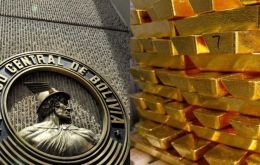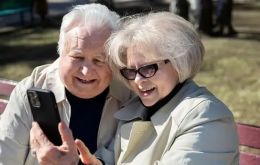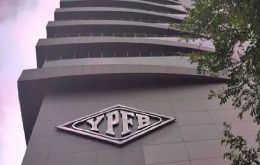MercoPress. South Atlantic News Agency
Latin America
-
Monday, October 20th 2025 - 10:50 UTC
Trump confirms new tariffs for Colombia

US President Donald Trump confirmed on Sunday that the US was preparing to announce significant tariffs on Colombia, following the Republican leader's decision to suspend financial aid to the South American country due to its alleged inaction in the fight against drug trafficking
-
Monday, October 20th 2025 - 10:41 UTC
IAPA finds deteriorating conditions for reporters in Paraguay and Venezuela

The Inter-American Press Association (IAPA), at the close of its 81st General Assembly, released a report highlighting “persistent serious challenges” to freedom of expression in Paraguay. It also noted that 80 digital news portals were blocked in Venezuela, including CNN, NTN24, and Infobae.
-
Monday, October 20th 2025 - 09:34 UTC
Lula favors independent Latin America against foreign bullying

In Brazilian President Luiz Inácio Lula da Silva's view, joint education projects involving all Latin American countries would ensure greater independence for the region and prevent “presidents of other countries” from bullying him.
-
Saturday, October 18th 2025 - 03:28 UTC
Bolivia concludes its first gold futures sale

Bolivia's Central Bank (BCB) successfully concluded its first gold futures sale, a transaction executed under a controversial legal framework aimed at bolstering the country's international reserves and foreign currency liquidity. The sale of 3 tons of gold generated a total of US$388.8 million for the BCB.
-
Friday, October 17th 2025 - 07:53 UTC
Peru's Acting President on the brink of impeachment after less than a week

Thousands of Peruvians marched in Lima and other cities on Thursday, driven by discontent over government corruption and high levels of insecurity. The country's one-house Congress launched the proceedings towards the impeachment of Acting President José Jerí, who took over as chief executive on Oct. 10 following Dina Boluarte's snap removal from office.
-
Friday, October 17th 2025 - 01:34 UTC
Argentina's pension system among the worst

According to the 2025 Mercer CFA Institute Global Pension Index, Argentina's pension system ranked 51st out of 52 countries surveyed, while those of Chile and Uruguay stood out in the region. The Netherlands topped the list globally with a score of 85.4 (A rating).
-
Thursday, October 16th 2025 - 19:55 UTC
Bolivian Senate passes bill allowing direct fuel imports

Bolivia's Senate has passed a bill allowing for the direct import of fuels by petrol stations to make up for the shortages stemming from the State-run oil company YPFB's lack of US dollars to secure further imports. The initiative was then sent to the Lower House for final approval.
-
Thursday, October 16th 2025 - 10:00 UTC
Noboa blames illegal mining mafias for recent explosions

Ecuadorean President Daniel Noboa said Wednesday that illegal mining mafias were behind the car bomb attack in Guayaquil and two subsequent explosions. He claimed these actions were in retaliation against the government's measures in the conflict-ridden Imbabura province.
-
Thursday, October 16th 2025 - 07:40 UTC
Haiti: 90% of Port-au-Prince under gang control

According to the latest reports from Haiti, 90% of the country's capital, Port-au-Prince, is under the control of the criminal gangs operating in the area. In addition, the severe humanitarian and security crisis amid escalating violence, mass displacement, and the near collapse of the healthcare system was found to be worsening.
-
Wednesday, October 15th 2025 - 20:14 UTC
Car bomb kills one in Guayaquil

A car bomb explosion outside a shopping mall in Guayaquil, Ecuador, on Tuesday resulted in at least one person dead and two injured. The fatality was reported to be a local taxi driver. The explosion at around 6 pm local time caused damage to nearby vehicles and buildings.
